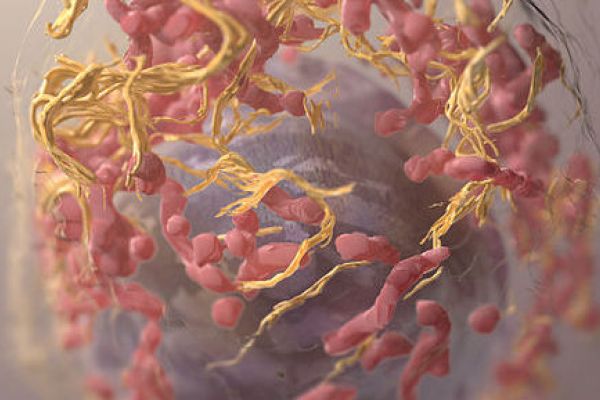An oncolytic virus is a special type of virus that infects and damages cancer cells (leaving healthy ones alone) and stimulates an immune response against the cancer.
How it works
Cancer cells are not very good at resisting viruses, making them susceptible to infection. However, viruses also work in another way. When a virus infects a cancer cell, it makes copies of itself until the cancer cell literally bursts. When this happens, the dying cancer cell’s debris includes antigens (proteins) that the immune system recognizes and activates immune cells like T cells and dendritic cells to fight against the cancer, too.
Currently, the only FDA-approved oncolytic viral treatment for cancer is talimogene laherparepvec, known as T-VEC, a genetically modified herpes virus, for use in patients with melanoma. Igor Puzanov, MD, MSCI, FACP, Director of the Center for Early Phase Clinical Trials at Roswell Park, helped develop this first-in-class oncolytic viral therapy therapy. Researchers at Roswell Park are working on strategies to modify oncolytic viruses to target and kill specific cancer cells and/or weaken them to make them more vulnerable to chemotherapy or radiation therapy.
Roswell Park offers FDA-approved oncolytic viral therapy, and other options in clinical trials, for patients with:
- Melanoma
- Triple negative breast cancer
- Bladder cancer
- Multiple myeloma
- Ovarian cancer


